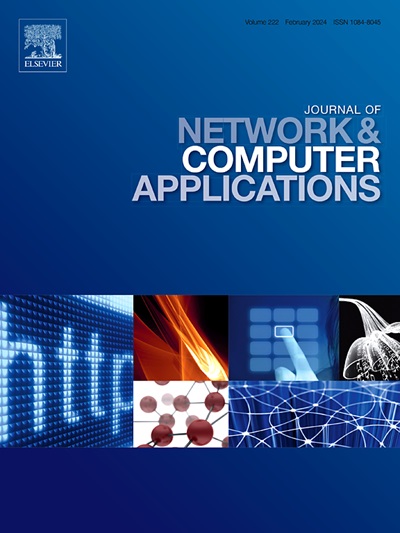MOOO-RDQN: A deep reinforcement learning based method for multi-objective optimization of controller placement and traffic monitoring in SDN
IF 8
2区 计算机科学
Q1 COMPUTER SCIENCE, HARDWARE & ARCHITECTURE
引用次数: 0
Abstract
Software Defined Networks (SDN) necessitates efficient controller placement strategies to address the NP-hard Controller Placement Problem (CPP), which involves minimizing propagation latency, balancing controller loads, and ensuring adaptability to dynamic network conditions. Traditional heuristic and deterministic algorithms face challenges in balancing optimality and computational efficiency, particularly in large-scale heterogeneous networks. This paper proposes Multi-Objective Optimization Oriented-Rainbow Deep Q Network (MOOO-RDQN), deep reinforcement learning framework that synergizes five advanced techniques, including double Q-learning, prioritized experience replay, dueling networks, multi-step learning, and noisy networks, to jointly optimize controller placement and switch-controller mapping. Experimental evaluations on real-world topologies demonstrate that MOOO-RDQN outperforms standard and state-of-the-art algorithms, achieving reductions of up to 42.49% in average controller-switch latency, 59.39% in worst-case latency, 30.56% in load imbalance, and 28.73% in training time. The solution gap from brute-force global optima remains below 15% across diverse network scales. Complementing the algorithmic innovation, we design an FPGA (Field-Programmable Gate Array) based traffic monitoring module utilizing CAN (Controller Area Network) interfaces and LED (Light-Emitting Diode) indicators to detect controller overloads in real-time. This hardware-software co-design not only validates the practicality of MOOO-RDQN but also lays the foundation for future works on closed-loop control plane optimization.
MOOO-RDQN:一种基于深度强化学习的SDN中控制器放置和流量监控的多目标优化方法
软件定义网络(SDN)需要有效的控制器放置策略来解决NP-hard控制器放置问题(CPP),这涉及到最小化传播延迟,平衡控制器负载,并确保对动态网络条件的适应性。传统的启发式和确定性算法在平衡最优性和计算效率方面面临挑战,特别是在大规模异构网络中。本文提出了面向多目标优化的彩虹深度Q网络(MOOO-RDQN),这是一种深度强化学习框架,它协同了五种先进技术,包括双Q学习、优先体验重播、对抗网络、多步学习和噪声网络,共同优化控制器放置和开关-控制器映射。实际拓扑的实验评估表明,MOOO-RDQN优于标准和最先进的算法,平均控制器切换延迟减少42.49%,最坏情况延迟减少59.39%,负载不平衡减少30.56%,训练时间减少28.73%。在不同的网络规模上,暴力全局最优方案的解决方案差距保持在15%以下。为了补充算法创新,我们设计了一个基于FPGA(现场可编程门阵列)的流量监控模块,利用CAN(控制器局域网)接口和LED(发光二极管)指示器实时检测控制器过载。这一软硬件协同设计不仅验证了MOOO-RDQN的实用性,也为今后闭环控制平面优化工作奠定了基础。
本文章由计算机程序翻译,如有差异,请以英文原文为准。
求助全文
约1分钟内获得全文
求助全文
来源期刊

Journal of Network and Computer Applications
工程技术-计算机:跨学科应用
CiteScore
21.50
自引率
3.40%
发文量
142
审稿时长
37 days
期刊介绍:
The Journal of Network and Computer Applications welcomes research contributions, surveys, and notes in all areas relating to computer networks and applications thereof. Sample topics include new design techniques, interesting or novel applications, components or standards; computer networks with tools such as WWW; emerging standards for internet protocols; Wireless networks; Mobile Computing; emerging computing models such as cloud computing, grid computing; applications of networked systems for remote collaboration and telemedicine, etc. The journal is abstracted and indexed in Scopus, Engineering Index, Web of Science, Science Citation Index Expanded and INSPEC.
 求助内容:
求助内容: 应助结果提醒方式:
应助结果提醒方式:


